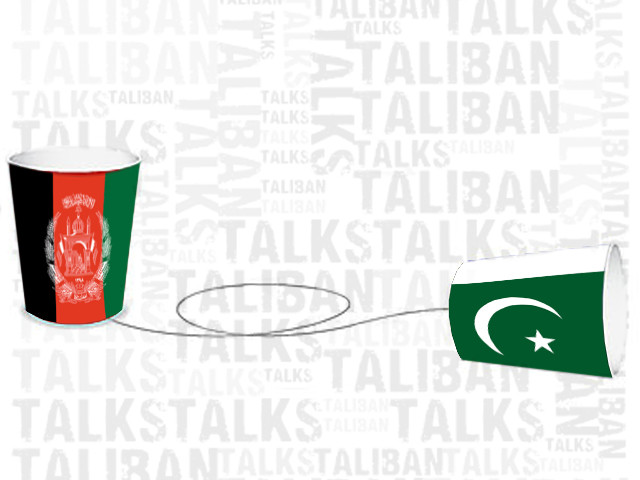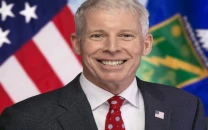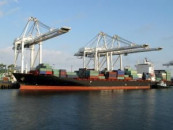Reconciliation: Pakistan committed to peace in Afghanistan, states FO
'There was no artillery shelling from the Pakistani side'

'There was no artillery shelling from the Pakistani side' PHOTO: FILE
A day after Afghanistan cancelled a military visit to Pakistan in protest against an alleged cross-border shelling incident, Islamabad sought to lower tensions with Kabul saying the two neighbours will have to work together in harmony to promote peace in Afghanistan and the region.
Recriminations between Afghanistan and Pakistan have undermined hopes that a recent thaw in relations could help bring the Taliban to the peace table.
Relations had recently improved, building up to a three-way summit hosted by Britain last month as part of efforts to end the conflict in Afghanistan. But a confidence-building visit by 11 Afghan officers due to take part in a military exercise in Quetta was called off by Kabul over reported firing across the border from Pakistan.
However, at his weekly news briefing, foreign ministry spokesperson Aizaz Ahmed Chaudhry suggested that Afghanistan “overreacted to a small incident.”
“Our troops responded … But they did so in a disciplined and responsible manner. There was no artillery shelling from the Pakistani side,” said the spokesperson, insisting that there was instead an intrusion from the Afghan side.
“Pakistan will continue to make its good offices available for bringing peace, reconciliation and stability in Afghanistan,” he added.
When asked about the inflammatory statements being made by Afghan officials, including Afghan President Hamid Karzai, accusing Pakistan of backing out from its commitment to reconciliation efforts, Chaudhry said, “We would hope to see an appreciation of the contributions made by Pakistan in furthering the peace process in Afghanistan.”
“We are engaged with Afghanistan at every level, from the leadership to working levels. We will continue to collaborate with them,” he added.
Chaudhry said Pakistan supports an intra-Afghan dialogue and has given its commitment to the High Peace Council to facilitate the reconciliation process.
“And we are honouring that commitment,” he insisted.
He maintained that Pakistan released Taliban detainees to help facilitate the reconciliation process, adding that a mechanism has been established to coordinate future releases.
Pakistan, which backed Afghanistan’s 1996-2001 Taliban regime, has a crucial role to play in efforts to negotiate a political settlement with the Taliban and end more than a decade of war.
Islamabad has been is in favour of allowing the Taliban to negotiate with all Afghan actors, including opposition groups, while the Karzai administration is adamant that the Afghan High Peace Council lead the process.
The spokesperson also voiced concerns over the presence of TTP safe havens in the Kunar and Nuristan provinces of Afghanistan.
“We hope that these safe havens from which incursions into Pakistan take place will be eliminated,” he said, adding that the issue had been taken up with the Afghan government.
Afghanistan accuses Pakistan of wrecking efforts
The Afghan government on Thursday continued to accuse Pakistan of wrecking reconciliation efforts.
Afghan President Hamid Karzai’s spokesman said that Pakistan had now abandoned the peace process and imposed “impossible” pre-conditions on any further discussions that would encourage the Taliban to lay down their weapons.
“Things were going well up to the trilateral (summit) in Britain, so we were hopeful, but soon it became clear that Pakistan had changed its position and the peace process was no longer its priority,” Aimal Faizi told AFP.
“They demanded we cut all ties to (Pakistan’s arch-enemy) India, send army officers to Pakistan for training, and sign a strategic partnership.”
Faizi described Pakistan’s demands as impossible because India was one of Afghanistan’s closest allies, and any Afghan officer who was trained in Pakistan would be viewed as a suspected spy when he returned home.
“And if we signed a strategic agreement with Pakistan, the Afghan public would stone us to death because they know that the suicide bombers that kill civilians and our armed forces come across from Pakistan,” Faizi added.
Published in The Express Tribune, March 29th, 2013.



















COMMENTS
Comments are moderated and generally will be posted if they are on-topic and not abusive.
For more information, please see our Comments FAQ